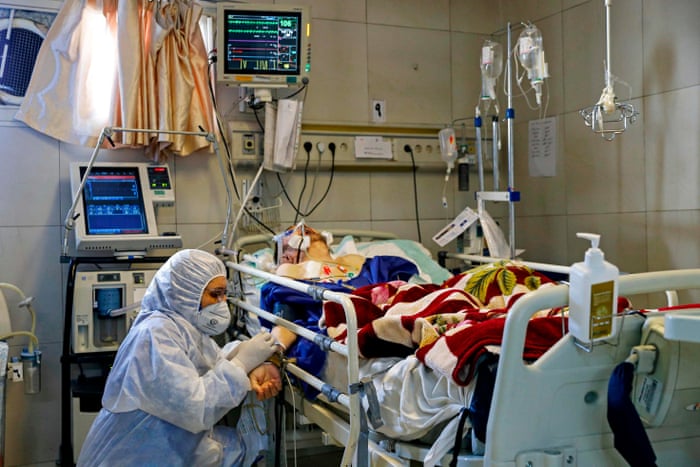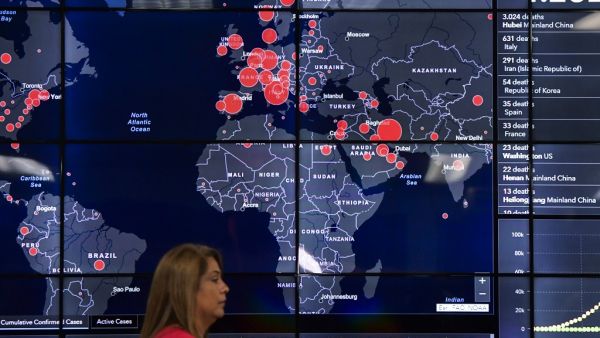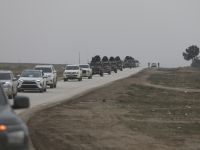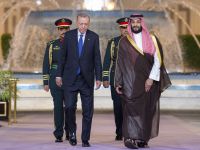As a quick expression, it’s been used to inspire liberal and social democratic political projects. But rarely has it ever applied so concisely to the global situation we all find ourselves in now: the COVID-19 pandemic has proven the fate of each nation’s people is intimately connected to the health of others, even in far-flung places.
Currently the world’s most vulnerable people are in Iran. And their vulnerability to the virus threatens the livelihood of billions across the globe. There, almost 70,000 COVID-19 cases have been officially tallied and about 3,800 have died so far, but these numbers are far too low. Some credible estimates in early March put the number of cases closer to 8 million in a country of 81 million people. Updating these numbers for April could mean over 12 million potential cases. The lack of independent media reports on Iran’s health situation have made it nearly impossible to get a grip on the true magnitude of the catastrophe facing Iranians now.
Currently the world’s most vulnerable people are in Iran. And their vulnerability to the virus threatens the livelihood of billions across the globe.
What is clear is that Iranian health authorities appear unable to contain the virus’ spread, meaning if the rate continues, millions could die in the next 18 months.
As some have already pointed out, ongoing U.S. sanctions are partially to blame.

Iranian health workers sanitize the streets (AFP/FILE)
A crippling set of economic sanctions unilaterally applied by the U.S. has effectively isolated Iran from the global economy and is working to prevent critical deliveries of aid to the beleaguered nation. Instead of lifting them, the U.S. has opted to apply even more.
Although the sanctions are designed with a so-called humanitarian exemption, Human Rights Watch reported in Oct 2019 that the sanctions were already “causing unnecessary suffering to Iranian citizens afflicted with a range of diseases and medical conditions,” by creating obstacles for banks and organizations to secure any meaningful trade or aid relationship with Iran.
More broadly, the U.S. sanctions are designed as bludgeons to the general economic health of Iran. In the narrow window between loosening of U.N. sanctions under Obama following the passage of the nuclear deal and Trump’s withdrawal from the same deal, Iran saw its prospects brighten considerably.
Currently the world’s most vulnerable people are in Iran. And their vulnerability to the virus threatens the livelihood of billions across the globe.
In 2015, the World Bank announced that “the government of Iran has the opportunity to put in place a policy framework that will enable the economy to make maximum use of this windfall and put the economy on a path of sustained economic growth.” A few months later, Iran signed a $16 billion deal with Airbus, it was finalizing a deal with Volkswagen to import new model vehicles and other companies were looking to exploit the steady reopening of Iranian markets. These prospects faded immediately when Trump re-imposed sanctions and broadly denied companies with trade partnerships to be exempt from them.
Iran has responded to its economic stagnation by implementing harsh austerity measures like raising petrol prices by 50%, which have caused yet more social unrest.
Part of the blame goes to Iran for mismanaging its own economy and allowing shadowy interests like the Revolutionary Guards (IRGC), which the U.S. designed a foreign terror group under Trump, to capture huge swathes of its market, but sanctions nonetheless have added fuel to the fire.
Putting all this together, the U.S.’ pursuance of a ‘maximum pressure,’ campaign on Iran has helped to hinder the government’s ability to combat COVID-19’s spread or the vast economic fallout. China, Turkey and some Gulf nations have managed to send aid to Iran, but it is still woefully insufficient.

An Iranian doctor tests a patient with COVID-19 in Tehran (AFP/FILE)
Here’s where this has global consequences: many members of Iran’s political and security apparatus are infected even as they traverse the region, contributing to breakouts in Lebanon and likely causing cases in Syria and Yemen. These three countries have been the focal points of Iranian attempts to secure influence, which tangibly means thousands of members of Iranian forces and attaches circulating in the region.
Because this particular virus strain is so contagious, these small-scale infections could produce hundreds if not thousands of subsequent cases. For instance, one patient in South Korea who tested positive but refused to be isolated was linked to 800 new cases.
To give the global effort to contain the virus a fighting chance, the crippling sanctions on Iran must be lifted.
These breakouts and their cascade of new infections could easily find their way across the globe. Theoretically, if a country like Italy was able to successfully contain the spread nationwide to a manageable load, but could not spot a new case linked to Iran until he had infected several individuals, it could be forced to repeat cycles of lockdown and quarantine for years.
This may seem hypothetical, but the recipe is there: Iranian ground troops could be infecting Syrians near the area of Idlib, who could then spread it to displaced Syrians traveling through Turkey or attempting to flee to Europe
This may seem hypothetical, but the recipe is there: Iranian ground troops could be infecting Syrians near the area of Idlib, who could then spread it to displaced Syrians traveling through Turkey or attempting to flee to Europe. The same could be happening in Yemen, since Iranian-backed Houthi forces have launched a series of offensives this Spring. At every step, infections could spread like wildfire through local communities, who then may spread it to countries across the world.
Without the ability to rapidly test for and contain the virus’ spread in the country and within its clandestine military enterprise, these kinds of breakouts may be inevitable, causing rolling waves of countries to shut down while imperiling millions and destabilizing global markets further.
To give the global effort to contain the virus a fighting chance, the crippling sanctions on Iran must be lifted.
The views expressed in this article do not necessarily reflect those of Al Bawaba News.







